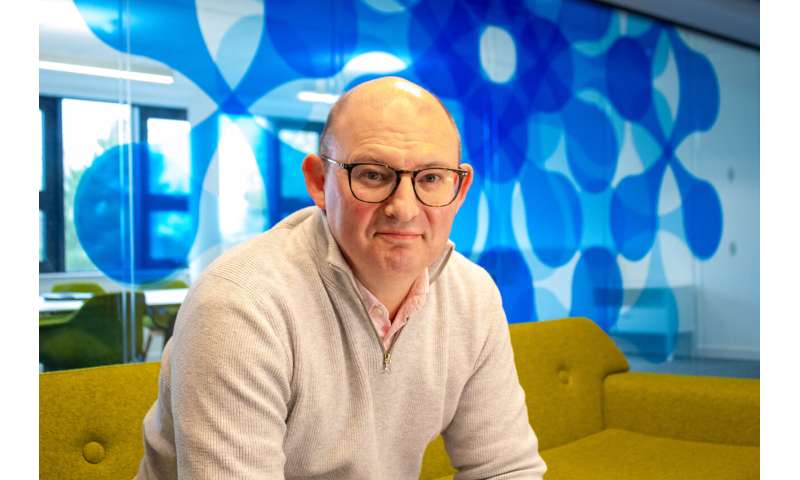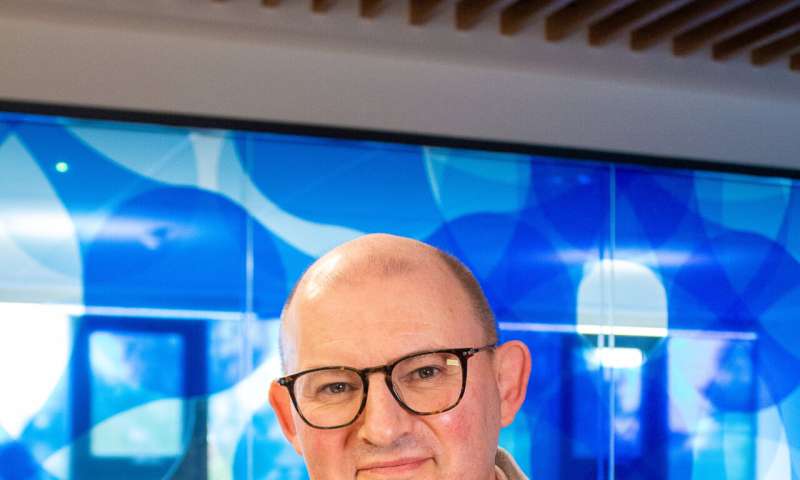Challenges of health inequality to be addressed in new partnership

A major new, multi-million pound project taking place across Tayside will address the challenges of health inequality using medical technologies developed by partners across Scotland.
Led by Heriot-Watt University and the University of Dundee, in collaboration with NHS Tayside, the team will examine how advancements in technology could move treatments away from large hospitals and into more accessible community settings such as GP surgeries or even a patient's home.
Dubbed Accelerating Impact of Community healthCarE in Tayside (AICCET), the £2.5 million project has been designed in partnership with Dundee City Council, NHS Tayside and five Scottish universities.
Experts from Heriot-Watt's School of Engineering and Physical Science, Dundee's School of Science and Engineering and School of Medicine, NHS Tayside Innovation and Dundee City Council, will work with counterparts from the University of St Andrews, Edinburgh Napier University and the University of Glasgow, to identify the feasibility and challenges to such a transition, all whilst maintaining or improving levels of patient care.
Heriot-Watt's Professor Marc Desmulliez said, "We want to empower patients, when it is reasonable and possible, to be more involved in their own healthcare solutions using technology that is tested and meets the needs of the NHS.
"For example, during their rehabilitation after an invasive surgery, patients may have to carry out some exercises to aid in their recovery. A healthcare solution could be a system that records and monitors the exercise. The essential information is then sent to the surgeon who is in charge to make sure the patient is progressing as planned. This could mean that if the patient is on track, they might not need to go to hospital for a check-up because the doctor has already seen the progress being made.
"Our hope will be to identify how we can ultimately accelerate the impact of community healthcare throughout Tayside to the benefit of all patients, regardless of their personal circumstances."

AICCET will consult and engage with suitable patients and other stakeholders that may benefit from treatments being delivered in a local setting, co-creating healthcare solutions which are patient centred. The views of the public will play a vital role in the research, with a "citizen assembly" established, allowing the team to learn more about individual patient needs.
Another crucial aspect of the project will be cooperation with industry partners, which will be needed to ensure that mass manufacturing of technology can be provided should successful outcomes be identified.
The study will take place in the Tayside region due to its mixture of urban and rural communities, economically diverse population, and the long-established relationship between the University of Dundee and NHS Tayside. The project is being supported by experts from InnoScot Health, Scottish Enterprise and SHARE—an NHS Research Scotland initiative—and is funded by the Engineering and Physical Sciences Research Council's Place-based Impact Acceleration Account, part of UK Research and Innovation, which is funding ten major projects throughout the UK.
Professor Michael MacDonald, from Dundee's School of Medicine, said, "One of the major challenges that face health boards is ensuring that it can meet the needs of the public, regardless of an individual's circumstances.
"Currently, much of that care will be delivered at a single site, such as Ninewells Hospital in Dundee, which may be hard to access for some patients due to where they live or personal transportation or mobility challenges.
"Technology allows us to reconsider how, and where, services are delivered. The Tayside region provides a perfect microcosm of the issues that have faced healthcare providers and our work with Heriot-Watt University and partners will look to address these.
"Ultimately, we hope to identify ways in which we can improve the patient journey and reduce the requirement for clinical staff to deliver some treatments, freeing up their time to focus on other pressing patient needs."
Professor Miles Padgett, Interim Executive Chair at EPSRC, said, "I'm pleased to announce our first ten Place Based Impact Acceleration Accounts which will play a unique role in enhancing the capabilities of innovation clusters across the UK. A key priority for UKRI is to strengthen clusters and partnerships in collaboration with civic bodies and businesses, thereby driving regional economic growth."
More information:
1. Images of Professor Marc Desmulliez from Heriot-Watt University can be found here: www.dropbox.com/scl/fo/2zj76ma … o0xbt77s1p04n6c&dl=0
2. For media enquiries or media requests, please contact the Heriot-Watt University media team via mediaenquiries@hw.ac.uk
3. For more information about the UKRI see here: UKRI—UK Research and Innovation
4. About Heriot-Watt
Heriot-Watt University is a global research-led university based in the UK, with five campuses in Edinburgh, the Scottish Borders, Orkney, Dubai and Malaysia.
More than 27,000 students from 160 countries are currently studying with us. We have 152,000 alumni in 190 countries.
We are specialists in business, engineering, design and the physical, social, sports, environmental and life sciences subjects which make a real impact on the world and society.
Heriot-Watt was founded in Edinburgh in 1821 as the world's first mechanics institute. In 1966, it became a university by Royal Charter. The university is named after 18th century Scottish engineer and inventor James Watt and 16th century Scottish philanthropist and goldsmith George Heriot.
86.8% of Heriot-Watt's research is classed as world-leading and internationally excellent in the Research Excellence Framework 2021—the UK's system for assessing the excellence of research in UK higher education providers.
The university runs 113 undergraduate programmes and 170 postgraduate programmes across six academic schools and Edinburgh Business School.
Our six academic schools are:
• Energy, Geoscience, Infrastructure and Society
• Engineering and Physical Sciences
• Mathematical and Computer Sciences
• Social Sciences
• Textiles and Design
• Global College
Edinburgh Business School is one of the world's largest providers of postgraduate business education, with 49,000 alumni across 158 countries.
Website: www.hw.ac.uk/
Provided by Heriot-Watt University